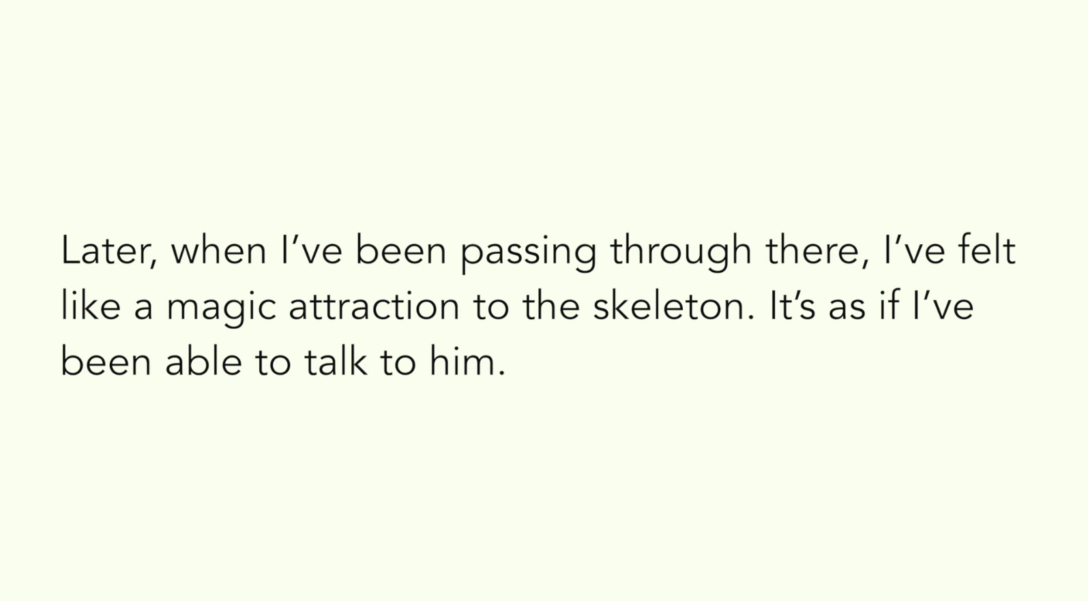A flood of homemade cell phone videos gave us a clearer image of the violence enacted against BLM protesters in recent weeks. That’s got us thinking about the power of personal accounts and diaries.
Here are some wonderful streaming and listening options whose subjects had a hand in collaborating in or creating the work itself, transforming their own experiences into art, for your weekend streaming and listening pleasure. These films and audio documentaries uncover an intimacy that’s only possible through a deep trust between the creator and subject.
And remember, Popula Film Club recommendations are always chosen with a view to defunding the kleptocrats.
–Nick Gallagher
The Feeling of Being Watched (dir. Assia Boundaoui, 2019)
via PBS POV (free)
Journalist and director Assia Boundaoui grew up in a Chicago suburb that was the site of an FBI probe in the late 90s; the agency was seeking to apprehend individuals laundering money to support terrorists abroad. With no evidence to support its claims, the FBI eventually closed the investigation. But residents continued to report being surveilled in the decades that followed.
When a speed bump appeared on the street outside her apartment, Boundaoui feared it might make it easier for FBI agents to slowly drive by her home and peer inside.
The Feeling of Being Watched tracks Boundaoui’s hunt for documents relating to the surveillance campaign that took place in her neighborhood. The film explores how the FBI’s fear tactics silenced Muslims and contributed to Islamophobia in the United States. It also examines the psychological toll that comes with constantly being followed and monitored by an unknowable entity.
PBS POV hosts independent non-fiction films and partners with local educators and community organizations to host film screenings and discussions throughout the United States.
Suzanne, Suzanne (dir. Camille Billops and James Hatch, 1982)
via The Criterion Channel Black Lives Collection (free for a limited time)
Artist and filmmaker Camille Billops’ first film is an intimate portrait of her niece Suzanne. In this quiet short, Suzanne grapples with her abusive father’s death and the lasting damage he’d inflicted on her through his violence. She reconciles with her mother, whom her father had also abused, and reflects on her issues with drugs, which had served her as a coping mechanism. It’s the first in a series of films that featured Billops’ own family members. The director, who died last year, went on to create the 1991 film Finding Christa, which detailed her efforts to reconnect with a daughter that she’d given up for adoption decades earlier.
The Criterion Collection publishes both new and classic films and coordinates film restoration projects. Its “Black Lives” series aims to spotlight the work of Black filmmakers and features narratives centered on the Black experience.
The Night Watchman (prod. Stephen Schwartz, 1971)
 Screenshot: Radio Atlas
Screenshot: Radio Atlasvia Radio Atlas (free)
Stephen Schwartz was a pioneering radio producer who developed an unusual set of interviewing techniques to evoke a dream-like mood in his pieces. Before beginning an interview, he’d ask subjects to lie on the floor of a quiet, dark room and breathe deeply to help them enter into a reflective, meditative state of mind. Subjects were then instructed to describe the “pictures” behind each of their memories, revealing vivid descriptions of a particular environment or scene.
In The Night Watchman, a guard reflects on his haunting and hypnotic nightly routine, which entails pacing around the grounds of a cadaver lab. His voice is hazy, just above a whisper, and it’s accompanied only by his own plodding footsteps. At one moment, he’s explaining how he winds through rooms filled with body parts and vats of formalin and how the skeletons keep him company on his lonely walks each night. And in the next instant, he’s delivering a lovingly honest description of his wife’s facial features: her lovely smile, broad cheekbones, and her “quite quaint” nose. It’s simultaneously eerie and soothing.
Radio Atlas is a website dedicated to providing subtitled English translations of international audio pieces. Listeners can explore translated audio works and sound art from around the world.
Blink Once for Yes (prod. John Fecile, Steven Jackson, and Lizzie Schiffman Tufano, 2016)
via Love+Radio (free)
Radio producer John Fecile set out to document how his family’s life changed after his brother suffered from a debilitating traumatic brain injury. Fecile hoped that by revealing his own trauma, even during embarrassing or unflattering moments, he might help normalize conversations about deep suffering. He later joked that creating the documentary was “cheaper than going to therapy” but just as effective. The composition is a blend of Fecile’s personal reflections and off-the-cuff remarks mixed with interviews with family members, friends and his brother’s caretakers.
Love+Radio is a podcast series featuring an eclectic mix of characters and stories directed by Nick van der Kolk.
Hi How Are You Daniel Johnston? (dir. Gabriel Sunday, 2015)
via YouTube (free)
Iconic outsider musician Daniel Johnston reflects on his life and corresponds with a younger version of himself in this genre-bending, hallucinatory short film. Johnston’s death in 2019 gives the film an added poignancy.
In one scene, a young Johnston asks his older self: “Do you find love in the end?”
“You mean true love?” the current-day Johnston responds. “Yeah, it’s more like if you have some good times, they seem even better when you just remember ‘em.”





